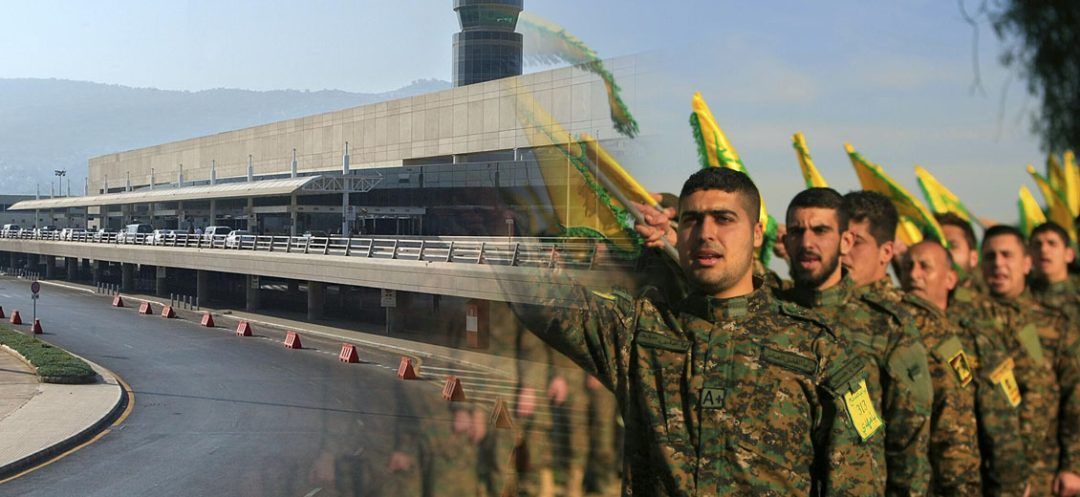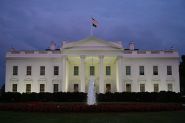
Hezbollah is reportedly storing a large quantity of Iranian weapons, missiles and explosives at Beirut International Airport (BIA), according to British daily newspaper The Telegraph, which quotes whistleblowers who work at the airport.
One anonymous airport worker described the situation to The Telegraph, saying, “This is extremely serious... My friends and I were scared because we knew that there was something strange going on.”
The whistleblower also specified that the airport “has always been used for weapons storage,” but that “the practice has intensified since the start of the conflict in Gaza last October.”
Another airport employee, speaking to The Telegraph on condition of anonymity, said large shipments from Iran, including “unusually big boxes,” arrived in November, coinciding with heightened tensions and fears of war.
The Telegraph also reported that airport staff said that Wafiq Safa, the head of Hezbollah’s “security apparatus,” is a well-known but discreet figure at the airport. “Wafiq Safa is always showing up at customs,” said a whistleblower, citing his close ties with customs officials.
The article specified that the weapons cache at BIA is believed to include Iranian-made Falaq unguided artillery rockets, short-range Fateh-110 missiles, mobile ballistic missiles, and M-600 missiles with a range of 150 to 200 miles (240 to 320 km). The airport is also said to house AT-14 Kornet laser-guided anti-tank missiles, large quantities of short-range Burkan ballistic missiles, and RDX explosives — a toxic white powder also known as cyclonite or hexogen.
A security source within IATA expressed to The Telegraph their inability to act without “international legal intervention,” despite being aware of the situation for years. “We are hand-tied to do what we’d really like, which is to close the airport and have all the weapons and explosives removed,” the source said.
Another IATA source denied this information, stating that no statements were made to The Telegraph.
The British newspaper emphasized that these revelations raise concerns that the Rafic Hariri International Airport, located just a few kilometers from the city center, could become a major military target. It reminded readers that Israel has been carrying out attacks for years on the (civilian) airports of Damascus and Aleppo in Syria, where Iran transfers weapons from its production facilities for its allies in the region.
One anonymous airport worker described the situation to The Telegraph, saying, “This is extremely serious... My friends and I were scared because we knew that there was something strange going on.”
The whistleblower also specified that the airport “has always been used for weapons storage,” but that “the practice has intensified since the start of the conflict in Gaza last October.”
Another airport employee, speaking to The Telegraph on condition of anonymity, said large shipments from Iran, including “unusually big boxes,” arrived in November, coinciding with heightened tensions and fears of war.
The Telegraph also reported that airport staff said that Wafiq Safa, the head of Hezbollah’s “security apparatus,” is a well-known but discreet figure at the airport. “Wafiq Safa is always showing up at customs,” said a whistleblower, citing his close ties with customs officials.
The article specified that the weapons cache at BIA is believed to include Iranian-made Falaq unguided artillery rockets, short-range Fateh-110 missiles, mobile ballistic missiles, and M-600 missiles with a range of 150 to 200 miles (240 to 320 km). The airport is also said to house AT-14 Kornet laser-guided anti-tank missiles, large quantities of short-range Burkan ballistic missiles, and RDX explosives — a toxic white powder also known as cyclonite or hexogen.
A security source within IATA expressed to The Telegraph their inability to act without “international legal intervention,” despite being aware of the situation for years. “We are hand-tied to do what we’d really like, which is to close the airport and have all the weapons and explosives removed,” the source said.
Another IATA source denied this information, stating that no statements were made to The Telegraph.
The British newspaper emphasized that these revelations raise concerns that the Rafic Hariri International Airport, located just a few kilometers from the city center, could become a major military target. It reminded readers that Israel has been carrying out attacks for years on the (civilian) airports of Damascus and Aleppo in Syria, where Iran transfers weapons from its production facilities for its allies in the region.
Read more




Comments